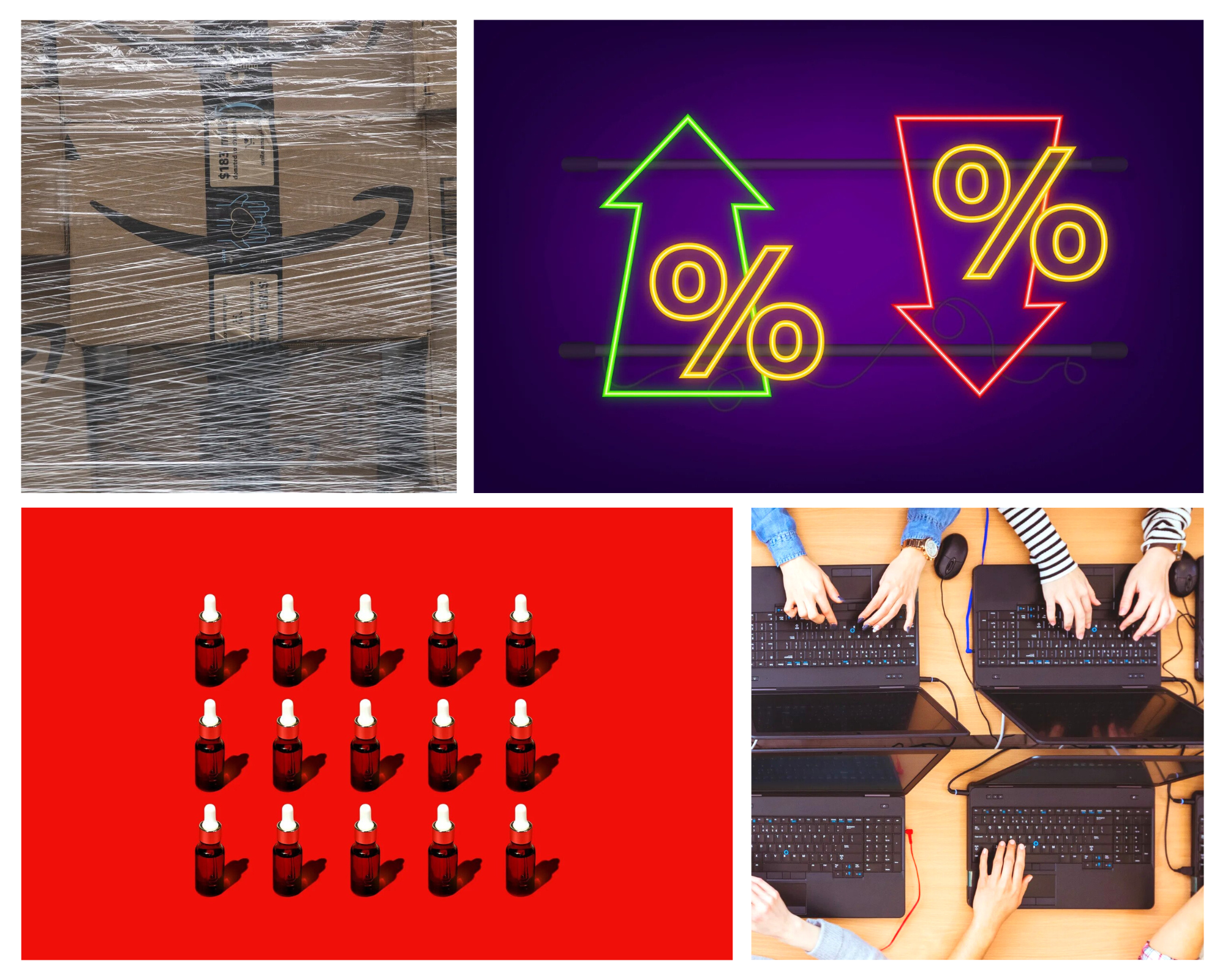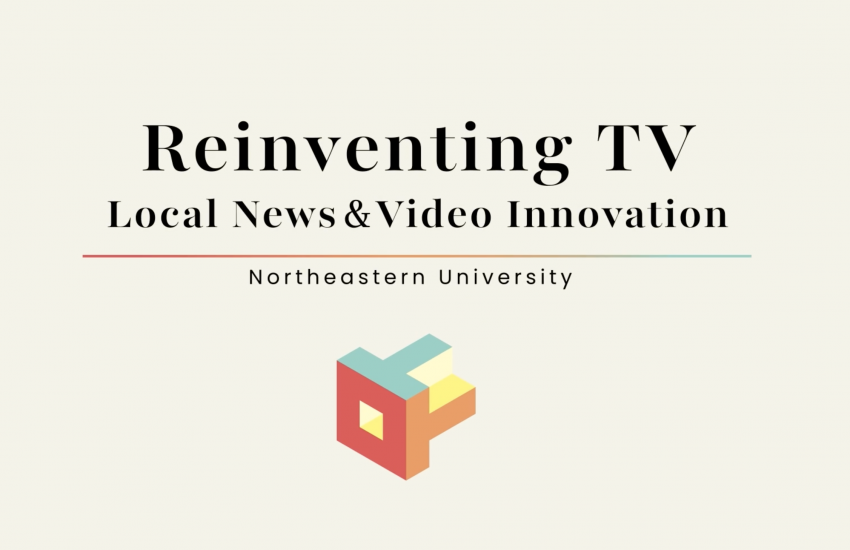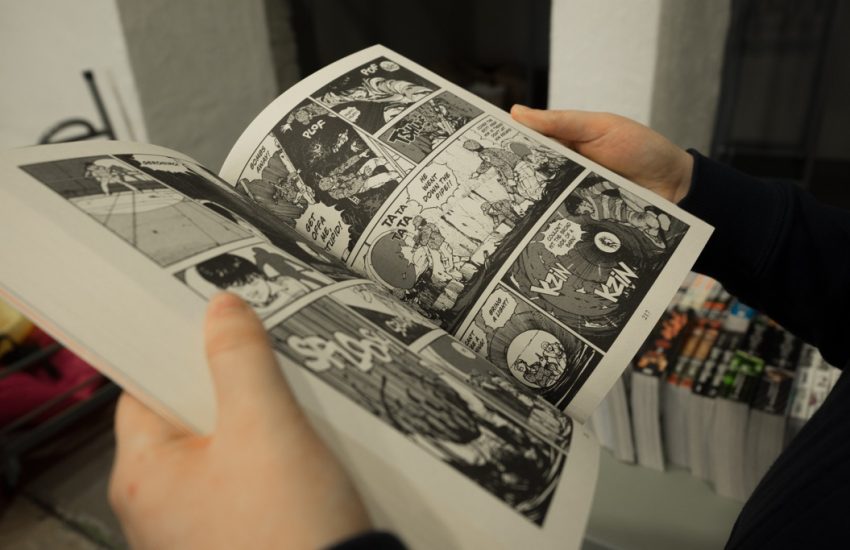Vox’s Emily Stewart on the necessity of financial literacy: ‘Money is the most important thing’
The current state of the economy is considered convoluted even to those who specialize in the fields of economics, business and finance. Emily Stewart, a senior corespondent at Vox, focuses her reporting on the intersection of politics and finance, aiming to make these topics more accessible and visible to the general public.
Stewart authors a biweekly newsletter for Vox called The Big Squeeze, in which she critiques the not-so-glamorous aspects of capitalism. Storybench connected with her to discuss the necessity of accessible economic news and get her views on elements related to financial reporting.
This interview has been edited and condensed for clarity.
Can you start by talking about your background, how long you’ve been at Vox and working in the senior correspondent role?
My background is a little bit different than most journalists. I went to Columbia [University] for undergrad in comparative [literature], and then I moved abroad and I lived in Argentina for seven years. So I didn’t work in journalism for most of that period, except for at a tech blog for a very short time. In 2014, I moved back to the States. I was working for a fin-tech startup at the time, but they laid me off after moving me back.
At the time when I was working for them, they contributed content to a website called TheStreet, and they were like, “You seem to be good at this — do you want to freelance?” And I was like, OK, and that kind of coincided with Donald Trump running for president in 2015.

This is a story that I think is very common among many journalists. Everybody sent their top people to the Jeb Bush campaign, and everybody assigned people who were newer and greener to the Trump campaign. I was kind of covering politics through a market and economics angle for them. In 2017 I started at Vox as a general assignment reporter. I was a weekend reporter, which sucked.
Then I early kind of forced my way up, so now I’m a senior correspondent, and I write about more economic policy stuff. The best I can explain my field is: It’s business and economics, but in a way that I hope makes it interesting for people and accessible to normal people. I think money is the most important thing, and we all live in the economy, and people forget that.
Do you actually enjoy writing about business and economics? Are those topics personally interesting to you?
When I came to Vox, I remember my interview was very funny. They were like, “What would you want to write?” And I feel like money is the most important thing. Part of what makes this place helpful for me is that I genuinely am interested in this stuff.
The fun part of it, which nobody ever buys into, is that you learn about stuff. You can really make anything fun, every little niche industry is interesting and fun.
One of my favorite stories I’ve done was about the lumber shortage, which sounds incredibly boring, but it was actually cool to talk to different people. You get to ask the stupidest questions in the whole world, and [lumber] had all become a meme at that point, and it was fun and funny. People don’t talk to the media a lot. You learn things that you would never even imagine, and it’s really enjoyable to learn that information and to speak to different people.
When readers are consuming your content, is there anything you hope they walk away with?
“The through-line is where people see themselves in it. But it’s in a different way where they want to be like, “Oh, I’m getting screwed by the man,” but nobody ever wants to also feel like they’re complicit in the system.”
I think it’s helpful when I can inject a little bit of personality and humor. That just feels fun and good to me. But I think the fun challenge, the fun part of the job, is learning random things. Then the challenge is trying to make sure that I conveyed everything on to the users and hoping that they don’t just read the headline or read the first two paragraphs and click out. I’m as guilty of that as anybody, but you want them to take something away from stuff.
One thing I’m working on more now is writing shorter. Sometimes stories are worth 3,000 words, and sometimes they’re definitely not. That’s totally fine, but I do think it is important to try and keep readers in mind and make sure they’re having like a decent time while they’re there, and making it accessible to people.
It’s always exciting also to see on Twitter or whatever, after you publish, and somebody quote Tweets a part of your story that shows that they read two-thirds of the way down. And it’s like, “Oh my God.”
I’ve found that people like or hate seeing themselves in stories, which is always interesting. My most popular recent stories were ones about pandemic purchases that people grew to hate, because everybody’s got the thing that they bought that they’re like, “Why do I have this now?”
The through-line is where people see themselves in it. But it’s in a different way where they want to be like, “Oh, I’m getting screwed by the man,” but nobody ever wants to also feel like they’re complicit in the system.
Why do you think it’s important for people to have accurate and unbiased information about the economy?
I was talking to somebody about this last night, about inflation. He had a very pointed point-of-view on this kind of stuff. And I asked him, “Do you think it’s monopolies [that are responsible]?” and he kind of skirted around it.
Right now, especially in the current state of affairs, the most accurate and unbiased answer when you ask somebody about what’s going on in the economy is: Nobody’s quite sure. We’re in specifically a very unique and weird time where, like, Are we in recession? Are we not in a recession?
Inflation is high, but also job growth is continuing, and so I think economic reporters have a big responsibility. And I think most are doing a pretty good job, beyond the ones that are obviously biased.
I think the most honest answer is to have a little bit of humility right now. We’re going to see that there is just a ton of uncertainty, and I think that is definitely being reflected in a lot of the journalism that I’m consuming and trying to write. And the biggest thing is just being completely honest. But who knows? I don’t think anybody knows.
What’s the biggest factor you keep in mind when you’re attacking pieces? Can you kind of walk us through your story building process?
I like going down a little rabbit hole. I try and think of something I’m excited about. I’ve had a few stories where I’ve just been in a conversation, or in an interview, and somebody says a thing, and you’re like, “Oh God, that’s the actual thing.” You just kind of know it.
One of the factors on this job is that sometimes the stories that you wind up hating working on are ones that you pitched.
I tend to be much more of a chatter than I am a reader. I never want to read an academic paper; I just want to call the author. At least for me, once I get the topic, you just start emailing people and hoping for the best. Right now, I’m trying to work on a story about the New York cannabis legalization market, and it is harder than I thought it was going to be. But it literally came up in conversation.
Sometimes you just won’t get to where you need to go, and have to accept, well, this is a pipe dream of a story. But sometimes it’s just like, “Hey, do you know anybody who would talk to me about this?” Especially in an economic space, I think the challenge is everybody talks to the same people. And those same people tend to be white guys.
I do try and make a pretty concerted effort to be like: If this story goes live, with only one type of interview, it does not go. Diversifying sources is more than just checking a box. People do actually have quite different perspectives, and it’s really valuable.
Is there anything within the realm of economic reporting that you haven’t tried yet but would like to?
I really like the niche stories. I think my ultimate goal is to continue on the path that I’m on and try to make it fun and interesting. One area that I find challenging — not that I haven’t tried yet — but rather I’m trying to plan is that our audience is a pretty white, affluent audience. And advertisers want to advertise to affluent people. And sometimes, it is a challenge for me because I have to get people to want to read stories where they don’t necessarily see themselves.
It’s a challenge; you could write a million future-of-work stories that are about how your boss is so mean for making you go into the office, and they’ll get a million clicks. There’s actually the one problem affecting many more people — scheduling and uncertain hours. Millions of people across the economy, workers, cannot plan their lives week-to-week, because they have no idea when they’re going to be working. I wish I could find a way to make people care about that, and maybe someday I will.
I think it’s important for people to see themselves in stories, but also certain people have time to be online reading the internet all day, and other people do not have the money. You know, sometimes I think it’s just a tough challenge. It’s a business, but it’s also: What do you want to achieve?
Tell us about your newsletter ‘The Big Squeeze’.
It was going to be called “That’s how they get you,” which might have been better. That’s basically the theme of it, if it continues to survive, is the scam that is capitalism — which sounds kind of lame to say, but I think it’s correct.
There’s obviously a ton of scam content out there right now. Right? I think the twist that we were attempting to take on this, to varying degrees of success is, [people] actually do kind of accept a lot of things in the economy as normal and fine.
And what if they’re not? Why do we just assume that everything’s fine? Why do we think that’s OK?
This was born because I have one internet provider in the middle of Brooklyn, New York, and it’s insane. And they can charge me whatever my interest and there’s nothing I can do because they’re my only provider, and it shouldn’t be that way.
What are your favorite resources for economic news? What outlets or people do you feel do economic news well?
The Wall Street Journal and Bloomberg do really excellent work. I know they’re both behind a paywall now. But they do a really good job in general; that’s where you’re going to get the actuality of what’s going on. And it can be a little bit dense, but it’s pretty accessible and pretty good.
In terms of specific journalists, I think Joe Weisenthal is a good follow on Twitter. He has a podcast with Tracy Alloway called Odd Lots, but it can be a little bit too in the weeds for me sometimes. I think [Weisenthal’s] been very good at keeping his finger on the pulse of what’s going on. And to be completely honest, some of where I’ve been lucky in terms of successful stories has been watching people like him, and stuff that’s starting to bubble up in the very small corners of the finance and econ worlds that haven’t hit the mainstream yet.
Also, Matt Levine if you haven’t stumbled across him — he’s a very good writer; he has a column over at Bloomberg. Especially on some of the Elon Musk stuff, or some of the crypto stuff, he’s pretty funny. He’s good at being like, ‘Hey, this is just not how any of this works.’
I really think the Wall Street Journal and Bloomberg are the ones where you’re gonna get what is actually happening, and what is important.
You mentioned that you got your start in freelance. What is your best advice for writers that want to get started in the freelance realm?
Freelance is hard. I did not love it, I found it hard. I know people who are very successful at it, and that is how they make a living. And I think it is one where you really have to hustle.
The editor will appreciate if you’re writing, like, I don’t know, some beautiful, whatever, great story that will like change the world. But let’s be honest: most stories are not those stories. Regardless of what you turn in, the editor will remember that it was a week late and will not want to deal with you again.
Once you do get in with a few editors, it becomes easier. I think my only piece of advice in this honestly is: No matter how good you think your story is or is not, it’s really important to be easy to work with.





